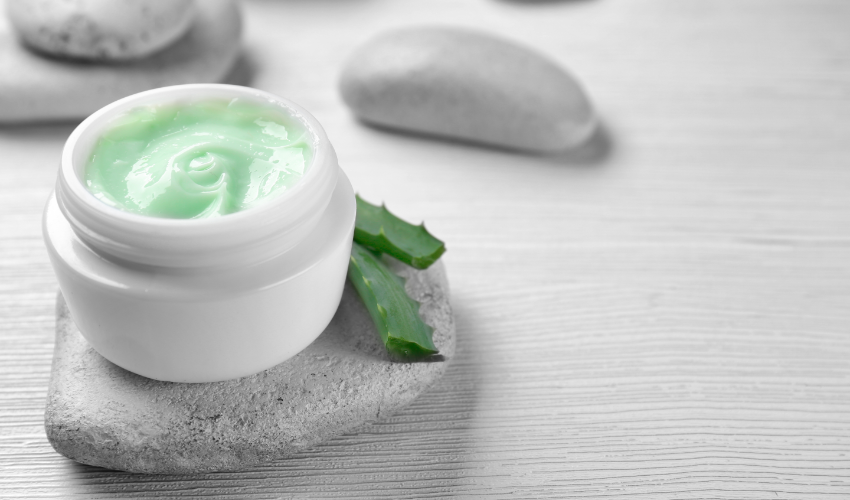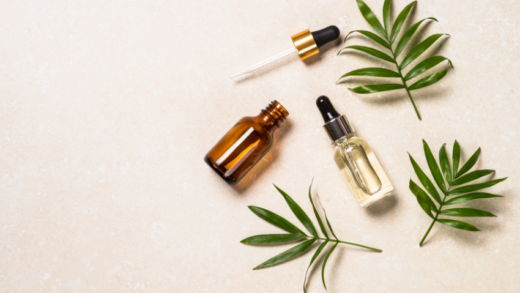Moisturizers are an essential part of any skincare routine. They help keep your skin hydrated and healthy, protecting it from environmental stressors. However, with so many options available in the market, it can be daunting to choose the right one for your skin type. In this article, we will guide you on how to choose a moisturizer that will work for you.
Identify Your Skin Type
- Dry Skin
- Oily Skin
- Combination Skin
- Sensitive Skin
- Aging Skin
Look for Key Ingredients
- Hyaluronic Acid
- Ceramides
- Glycerin
- Niacinamide
- Retinol
Consider Texture and Consistency
- Creams
- Lotions
- Gels
- Oils
- Serums
Choose a Moisturizer with Sun Protection
- Broad-Spectrum Sunscreen
- Sun Protection Factor (SPF)
- Physical vs. Chemical Sunscreens
Consider Your Lifestyle and Skin Concerns
- Acne-Prone Skin
- Anti-Aging
- Allergy-Prone Skin
- Environmental Factors
- Personal Preferences
Bullet Points:
Identify Your Skin Type
- Dry Skin: Look for a moisturizer that is rich and hydrating, with ingredients like hyaluronic acid and ceramides.
- Oily Skin: Look for lightweight, oil-free moisturizers that won’t clog pores.
- Combination Skin: Look for a moisturizer that balances the skin’s moisture levels without making it too oily or too dry.
- Sensitive Skin: Look for a moisturizer that is gentle and fragrance-free.
- Aging Skin: Look for a moisturizer that has anti-aging properties, such as retinol.
Look for Key Ingredients
- Hyaluronic Acid: Helps to hydrate the skin and lock in moisture.
- Ceramides: Help to strengthen the skin’s barrier and prevent moisture loss.
- Glycerin: Attracts moisture to the skin, keeping it hydrated.
- Niacinamide: Helps to reduce inflammation and redness.
- Retinol: Helps to reduce the appearance of fine lines and wrinkles.
Consider Texture and Consistency
- Creams: Ideal for dry skin types.
- Lotions: Ideal for combination and oily skin types.
- Gels: Ideal for oily skin types.
- Oils: Ideal for dry and aging skin types.
- Serums: Ideal for all skin types and can be used alone or with other moisturizers.
Choose a Moisturizer with Sun Protection
- Broad-Spectrum Sunscreen: Protects against UVA and UVB rays.
- Sun Protection Factor (SPF): Measures how long the sunscreen will protect the skin from UVB rays.
- Physical vs. Chemical Sunscreens: Physical sunscreens contain minerals like zinc oxide and titanium dioxide, while chemical sunscreens contain organic compounds.
Consider Your Lifestyle and Skin Concerns
- Acne-Prone Skin: Look for a moisturizer that is non-comedogenic and won’t clog pores.
- Anti-Aging: Look for a moisturizer that has anti-aging properties, such as retinol or peptides.
- Allergy-Prone Skin: Look for a moisturizer that is free from common irritants like fragrances and dyes.
- Environmental Factors: Consider the climate you live in and the activities you do. For example, if you spend a lot of time outdoors, you may need a heavier moisturizer with sun protection.
- Personal Preferences: Consider the type of product you like to use and how it fits into your skincare routine.
FAQs
Can I use the same moisturizer year-round?
Your skin’s needs may change with the seasons, so you may need to switch to a different moisturizer in the summer and winter. In the winter, you may need a heavier, more hydrating moisturizer, while in the summer, you may prefer a lighter, oil-free moisturizer.
Can I use a moisturizer with SPF instead of a separate sunscreen?
Yes, you can use a moisturizer with SPF, but it’s important to make sure it provides broad-spectrum protection and has an SPF of at least 30. Remember to reapply it every two hours if you’re outside for an extended period.
Can I use the same moisturizer on my face and body?
While some moisturizers can be used on both the face and body, it’s best to choose a moisturizer specifically formulated for the face. Facial skin is more delicate and may require different ingredients than the rest of your body.
Can I use a moisturizer if I have oily skin?
Yes, even oily skin needs moisture. Look for a lightweight, oil-free moisturizer that won’t clog pores.
How often should I apply moisturizer?
It’s best to apply moisturizer twice a day, once in the morning and once at night. If you have dry skin, you may need to apply it more frequently.
Conclusion
Choosing the right moisturizer is crucial for maintaining healthy, hydrated, and youthful skin. By identifying your skin type, looking for key ingredients, considering texture and consistency, choosing a moisturizer with sun protection, and considering your lifestyle and skin concerns, you can find a moisturizer that works for you. Don’t be afraid to try different products and experiment to find the one that suits your skin’s needs best. Remember, a little trial and error is all part of the process of finding the perfect moisturizer for you.























